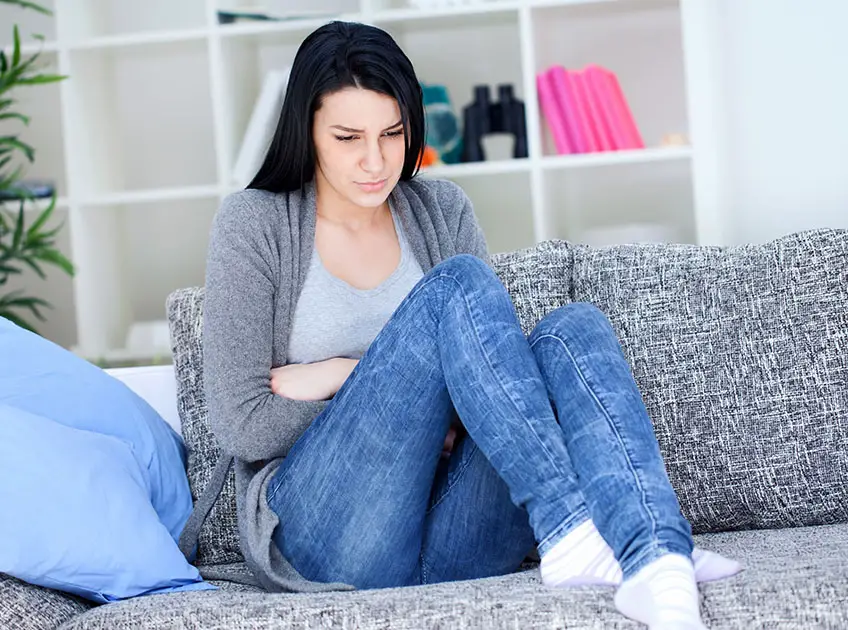
Important: This article is for informational purposes only. Please read our full disclaimer for more details.
There are many different causes of an upset stomach, and there are just as many home remedies that can help soothe it. From drinking plenty of fluids to eating the right foods, there are a number of simple things you can do to ease your discomfort.
Article Contains
Causes
There are many different things that can cause an upset stomach, including food sensitivities, overeating, stress, and certain medications. Indigestion, gastroenteritis, and even some cancers can also lead to an upset stomach.
Symptoms
The symptoms of an upset stomach can vary depending on the underlying cause. However, common symptoms include nausea, vomiting, abdominal pain, bloating, gas, and diarrhea.
Treatment
There is no one-size-fits-all treatment for an upset stomach, as the best course of action will depend on the underlying cause. However, there are a number of home remedies that can help ease your symptoms and provide relief.
Some of these home remedies include Drinking plenty of water, ginger, lemon juice or lemon soda, peppermint, apple cider vinegar, chamomile tea, use heating pad, figs, basil and BRAT diet.
1. Drink Plenty of Water

Dehydration can make your symptoms worse, so it’s important to make sure you’re drinking plenty of fluids. Water is the best choice, but you can also drink clear fluids like broth or sports drinks. Avoid caffeine and alcohol, as they can aggravate your symptoms. This remedy lacks scientific evidence.
[ Recommended: Best Foods For An Upset Stomach ]
2. Ginger
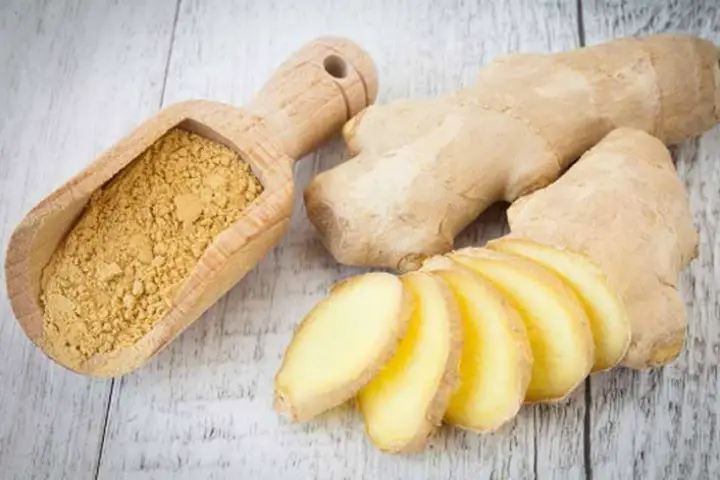
Ginger has long been used as a natural remedy for an upset stomach. It can help to ease nausea and vomiting. You can take ginger in capsules, as a tea, or by adding it to your food. Ginger is also known to be anti-inflammatory, so it can help to reduce any inflammation in your stomach. [1]
[ Recommended: How to Use Baking Soda for Upset Stomach ]
3. Lemon Juice or Lemon Soda

Lemon juice or lemon soda can help to settle your stomach and ease nausea. The acidity of the lemon can also help to break down any indigestible food in your stomach. You can drink lemon juice or soda on its own or add it to water or tea.
[ Recommended: How to Relieve an Upset Stomach with Apple Cider Vinegar ]
4. Peppermint
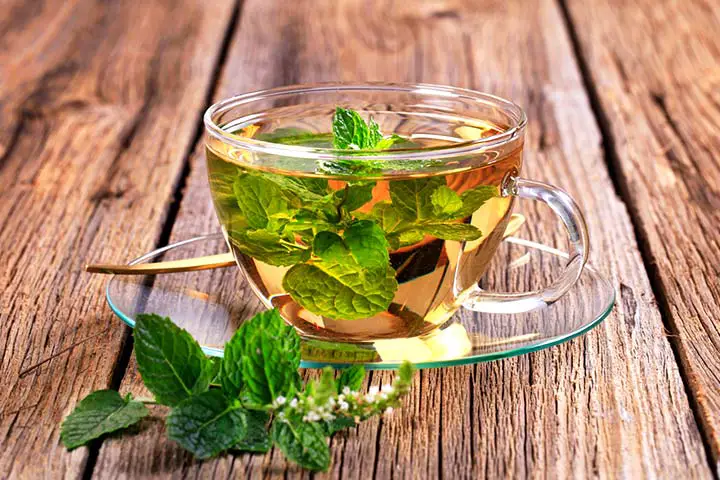
Peppermint has long been used as a natural remedy for an upset stomach. It can help to relax the muscles in your digestive tract and ease nausea, bloating, and gas. You can take peppermint in capsules, as a tea, or by adding it to your food.
[ Recommended: Why Do You Feel Pooping In The Stomach ]
5. Apple Cider Vinegar
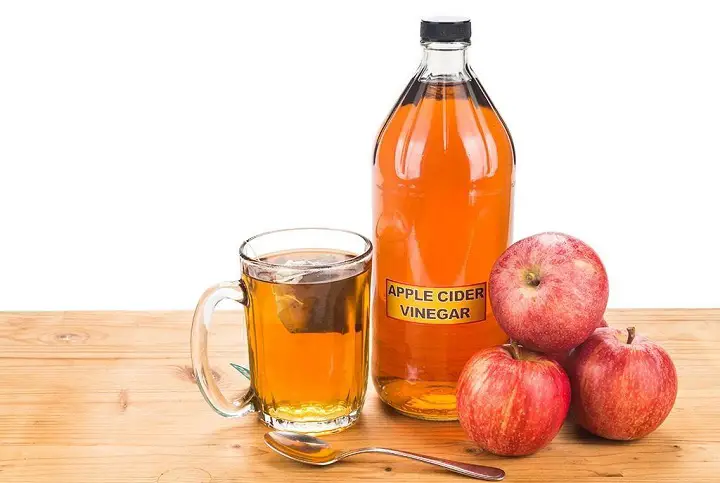
Apple cider vinegar is thought to have several health benefits, including aiding in weight loss and reducing inflammation. It’s also been shown to be effective in treating an upset stomach. The acidity of the vinegar can help to break down indigestible food in your stomach and ease nausea. You can take apple cider vinegar in capsules or add it to water or tea.
6. Chamomile Tea

Chamomile tea is a popular home remedy for an upset stomach. The tea can help to relax the muscles in your digestive tract and ease nausea, bloating, and gas. You can also use chamomile oil in a diffuser to help soothe your symptoms.
7. Use a Heating Pad
Applying heat to your stomach can help to ease abdominal pain. Heating pads are available at most drugstores. You can also use a hot water bottle or a heated rice sock. Apply the heat for 15-20 minutes at a time and take breaks in between to avoid burns.
8. Figs

Figs are a natural laxative, so they can help to relieve constipation, which can contribute to an upset stomach. You can eat fresh or dried figs, or you can add them to your food. Fig juice is also effective in treating an upset stomach.
This remedy lacks scientific evidence.
9. Basil
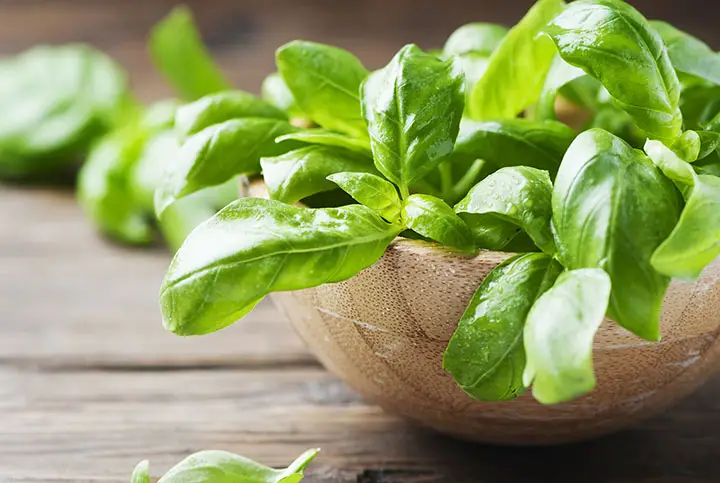
Basil is an Herb That Can Help Soothe an Upset Stomach. The volatile oils in basil have been shown to be effective in treating an upset stomach. Basil leaves can help reduce stomach gas and the linolenic acid in basil has anti-inflammatory properties that can ease the stomach. [2]
10. BRAT Diet
The BRAT diet is often recommended for people with an upset stomach. The diet consists of bland, easy-to-digest foods like bananas, rice, applesauce, and toast. This diet can help to settle your stomach and ease nausea. However, it’s important to make sure you’re still getting enough nutrients and calories while on the diet. [3]
What to Avoid When You Have an Upset Stomach?
When you have an upset stomach, there are a few things you should avoid. These include:
1. Caffeine: Caffeine can irritate your digestive tract and make your symptoms worse. So it’s best to avoid coffee, tea, energy drinks, and soda.
2. Alcohol: Alcohol can dehydrate you and irritate your stomach. It can also make your symptoms worse. So it’s best to avoid alcohol if you have an upset stomach.
3. Spicy Food: Spicy food can irritate your stomach and make your symptoms worse. So it’s best to avoiding eating spicy food if you have an upset stomach.
4. Fatty Food: Fatty food can slow down digestion and make your symptoms worse. So it’s best to avoiding eating fatty food if you have an upset stomach.
When to See a Doctor?
If your symptoms are severe, or if you’re having trouble keeping food down, you should see a doctor. You should also see a doctor if your symptoms last longer than a few days, or if you have blood in your stool. These could be signs of a more serious condition.
Note: Some of these remedies may not be suitable to everyone, so always do a patch test before trying or check with your doctor before trying them.
These are some of the most effective home remedies for an upset stomach. If your symptoms are severe, or if you’re having trouble keeping food down, you should see a doctor. Try these remedies safely at home and see which one works best for you.
Read More:
- Essential Oils For Diverticulitis
- 10 Foods to Eat When You Have Gastritis
- Why Do You Feel Pooping In The Stomach
- How to Relieve an Upset Stomach with Apple Cider Vinegar?
- How to Use Baking Soda for Upset Stomach?
- Best Hangover Foods To Eat When You’re Hungover
















